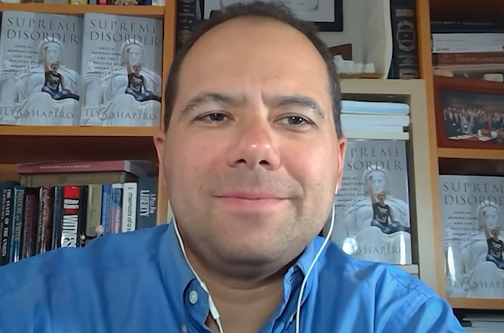Higher education reform is possible, scholars say

Higher education is in dire need of reform, at least in the eyes of conservatives. Two conservative scholars penned a joint opinion editorial that outlined potential proposals for state lawmakers.
Manhattan Institute scholars Ilya Shapiro and Christopher Rufo penned a piece in the Wall Street Journal, which could significantly change the college and university landscape.
First, they recommend the end of the entrenched diversity, equity, and inclusion (DEI) bureaucracies at universities. “These offices work actively against norms of academic freedom and truth-seeking, advance primarily political aims, and fuel administrative bloat that raises costs and exacerbates student debt,” they noted. Instead of being active partisans, Shapiro and Rufo said that administrators should be neutral on political issues.
Second, universities should bar mandatory diversity trainings for staff, faculty, and students. Despite their claims that these trainings are voluntary, faculty take the trainings in order to serve in other roles at the university. Shapiro and Rufo wrote, “Typical diversity training includes unscientific claims about “microaggressions” and “implicit bias” and rejects the basic American principle that everyone should be treated equally. It indoctrinates an ideology of identity-based grievance, guilt and division.”
Third, scale back the use of so-called “diversity statements” as a form of coercion. The authors noted that although the U.S. Supreme Court banned loyalty oaths as unconstitutional in public education, universities’ requirement of diversity statements is another form of a loyalty oath. “These serve as litmus tests in employment processes to exclude applicants who don’t adhere to critical race theory and other radical beliefs,” they wrote.
And finally, they called for the end of preferences based on race or identity. “[D]iscriminating based on race, sex, ethnicity or national origin is antithetical to universities’ basic missions,” they said, “Outlawing admissions and hiring based on these characteristics would curtail universities’ efforts to evade a mandate against them from the high court.”
The authors concluded that these reforms would “free faculty and students alike to explore intellectual ideas without fearing the thought police.”
Shapiro knows first-hand the destructive culture of higher education institutions, where cancel culture came after him over a poorly-worded social media post on Twitter. Soon after accepting the job as the senior lecturer and executive director at Georgetown University Law Center’s Center for the Constitution, he tweeted that there was a better-qualified, potential U.S. Supreme Court nominee instead of President Joe Biden’s pick, Ketanji Brown Jackson. Critics seized on the opportunity to cancel him, to which Shapiro offered an apology.
Yet the university dragged out the disciplinary process for 122 days until he was reinstated, on the grounds that he was not officially a university employee and therefore was not subject to discipline. But Shapiro resigned from the university because he felt that the investigation would handicap his work.
Shapiro currently works as the director of constitutional studies at Manhattan Institute.
Rufo is the director of the institute’s initiative on Critical Race Theory and is often criticized for unearthing information about the Left’s infiltration into public education, whether it is K-12 or higher education.




